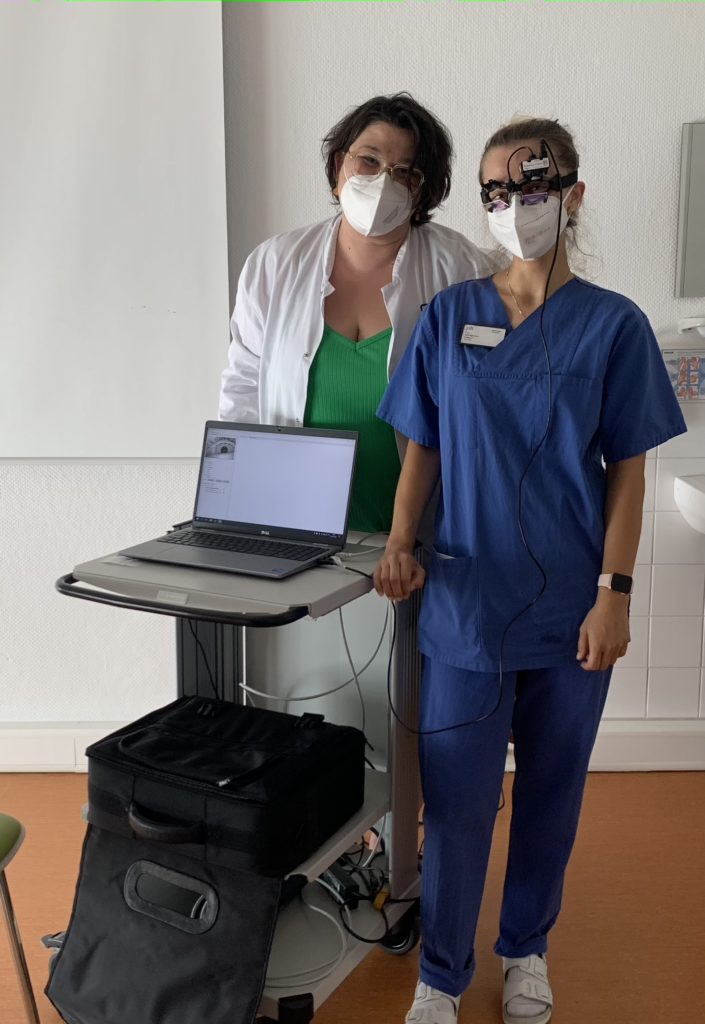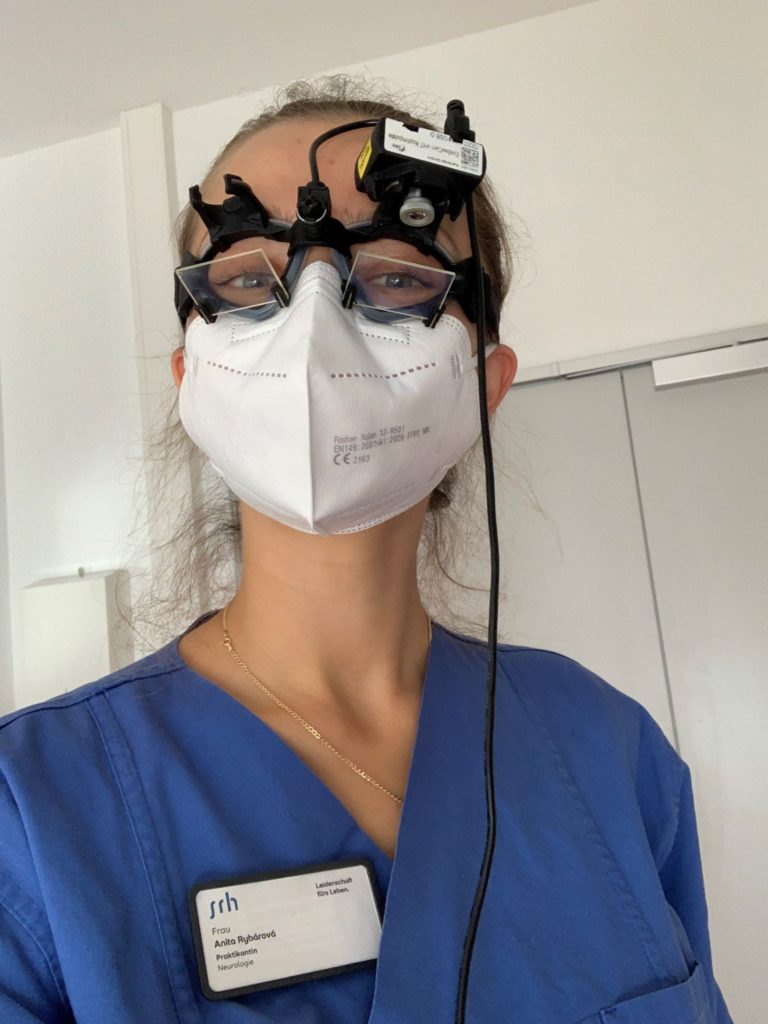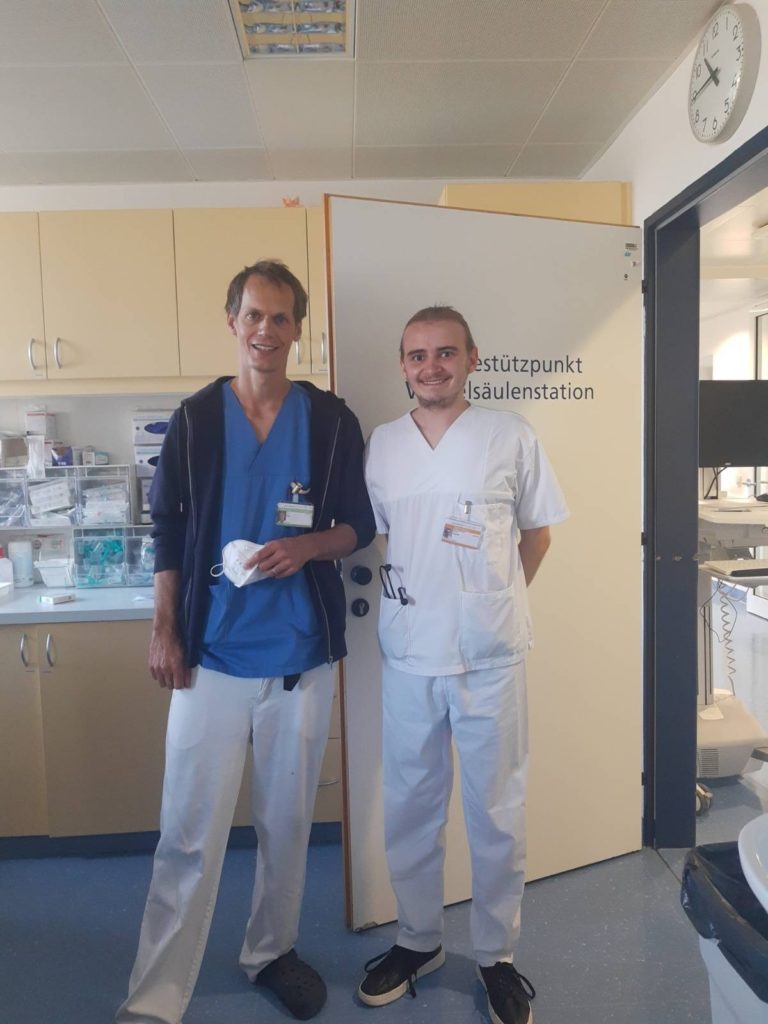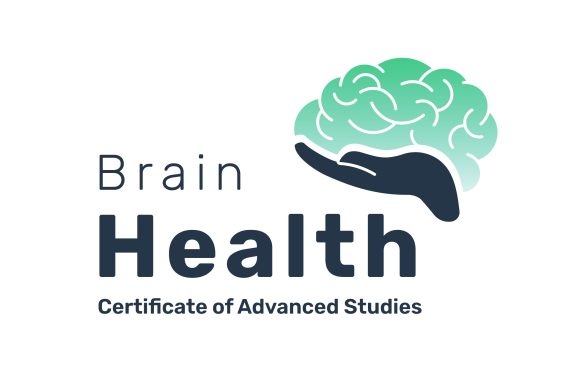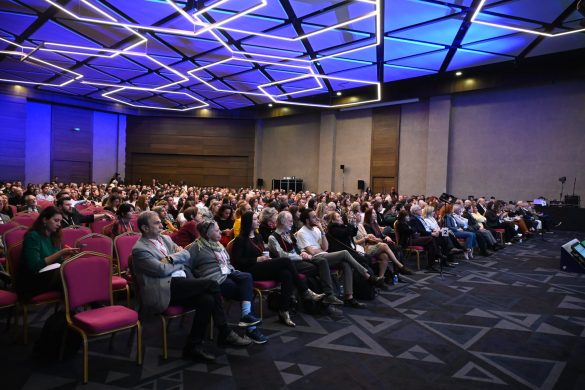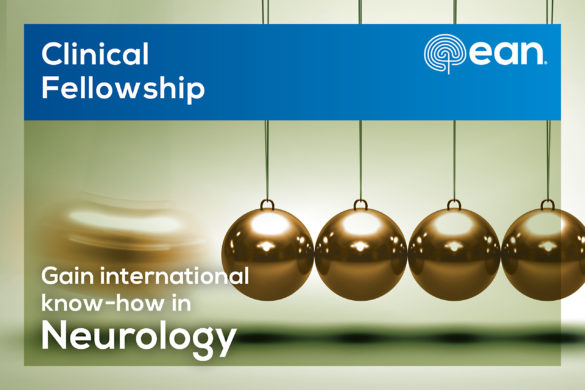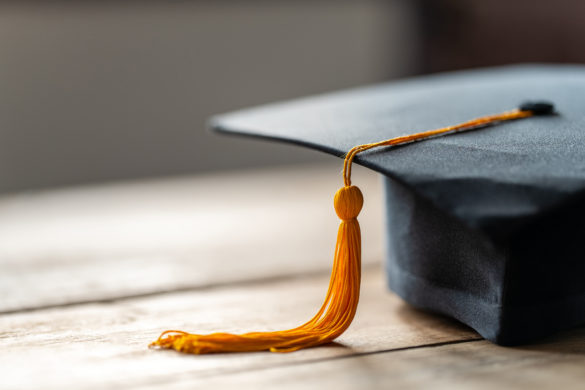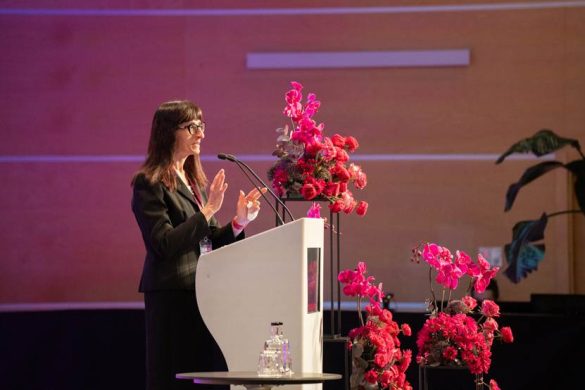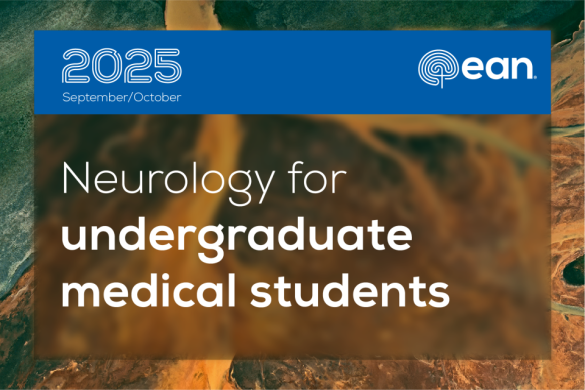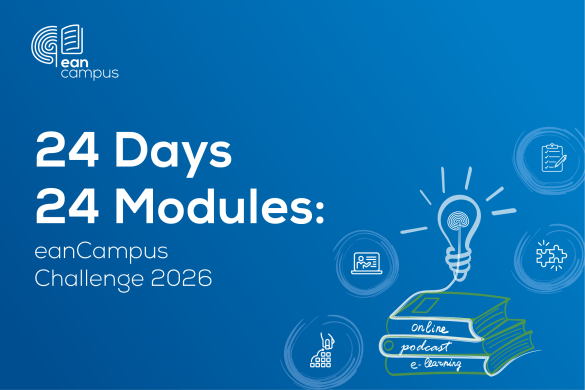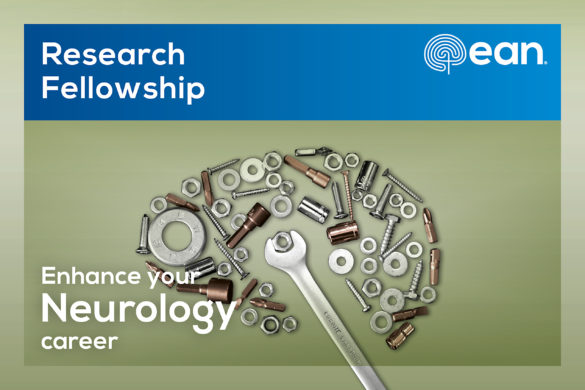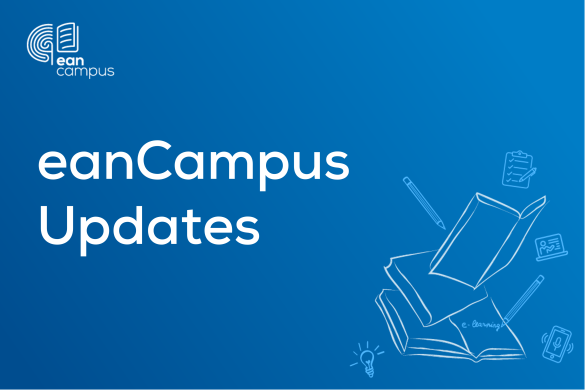One month spinning around vertigo
by Anita Rybárová
Visiting the SRH Klinikum Karlsbad, Department of Neurology in Karlsbad, Germany in July 2022
It is a great pleasure to report on my experience enabled by the EAN Student Fellowship programme. My training took place at the Klinikum Karlsbad-Langensteinbach in Germany with a total length of four weeks. It was focused on the clinical evaluation and apparative testing of patients with vestibular and gait disorders.
I decided to apply for this fellowship programme because of my interest in neurology, especially in balance and vestibular disorders. Prior to this internship I had not had the opportunity to see various types of vestibular examination. Therefore I chose the hospital in Karlsbad-Langensteinbach, which has a well-equipped vertigo laboratory (Schwindellabor). My training was under the supervision of Prof. Dr med. Michael Fetter and MD, MS, PhD. Anca Rightmire, who are specialists in vestibular and gait disorders.
During my internship I had the opportunity to work at the general neurological station, stroke unit, and the neurorehabilitation station. I took part in daily ward rounds, neuroradiological sessions and neurorehabilitation team meetings. I knew before that dizziness or vertigo is the second most common complaint that doctors hear. After these four weeks, I am convinced, that this is true. It was really easy to see patients with dizziness or vertigo at every station on almost a daily basis. The differential diagnosis was often very broad. I examined mostly patients with vestibular migraine, benign postural paroxysmal vertigo (BPPV) and acute stroke. I learned the basic examination how to differentiate between peripheral and central vertigo and how to perform examinations of patients with BPPV. In the special vertigo laboratory, I was able to perform examinations such as video head-impulse test, optokinetic test, and calorimetry and rotatory chair tests. My mentor, Dr Anca Rightmire taught me how to interpret the results. Every Friday a NeuroClub was held by my mentor Dr Rightmire, where we went through topics related to vertigo and had chance to preform vestibular examination on ourselves. I also attended a lecture by Prof. Michael Fetter, head of the neurological clinic, about vertigo – differential diagnosis and examination. Additionally, to my neurological knowledge and skills, I was able to improve very distinctly my German language skills.
During this month I got to know very kind people at the clinic who took me as a part of their team. I would like to thank Prof. Fetter for the opportunity to do this fellowship at the neurological clinic in Karlsbad-Langensteinbach, for the uncomplicated communication and organisation. Special thanks to my mentor Dr Rightmire for her leading, teaching, kind and open approach. Big thanks to all senior physicians and residents for their friendly attitude, nice moments we spent together and time they invested in teaching me. This month literally stole my heart and I decided to come back for another internship starting in September. Last but not least, I would like to thank European Academy of Neurology for this unique chance and support.
Report from 4 weeks in Zagreb
by Asja Hodžić
Visiting the Division of Epilepsy and Paroxysmal Consciousness Disorders of the Department of Neurology, University Hospital Centre in Zagreb, Croatia in September 2022
It is with great pleasure that I report on my EAN Student Teaser Fellowship that took place in the Division of Epilepsy and Paroxysmal Consciousness Disorders of the Department of Neurology, University Hospital Centre Zagreb.
The Divison of Epilepsy and Paroxysmal Consciousness Disorders is a Referral Centre of the Ministry of Health of the Republic of Croatia for Epilepsy and an affiliated partner of the ERN EpiCARE. Here, the most up-to-date pharmacological approach to the treatment of patients with epilepsy is carried out, with previous neurophysiological diagnostic procedures. Special attention is paid to patients with pharmacoresistant epilepsy who are candidates for sophisticated subspecialist preoperative diagnostic treatment. Within the Centre for Epilepsy, there is a Laboratory for Clinical Neurophysiology, a laboratory for continuous polygraphic video-EEG monitoring, a laboratory for polysomnography and a laboratory for preoperative processing and invasive EEG monitoring. After preoperative diagnostic processing, in cooperation with a multidisciplinary team of specialists, an indication for minimally invasive neurosurgical treatment (implantation of a vagus stimulator) or resective neurosurgical treatment is established. The doctors of the Centre for Epilepsy continuously follow current world trends, providing patients from Croatia and neighbouring countries with the highest level of treatment.
As a student, in only four weeks I learned more than I could have ever imagined. I spent the first half of the fellowship studying the basics of EEG and participating in the examination of patients in the outpatient clinic, including both the first exams as well as routine checkups. Although this was my first encounter with this complex matter on a subspecialty level, the doctors and the neurophysiology technicians were very patient and did everything to make it easier for me to understand. The final two weeks were dedicated to the management of patients hospitalised in the ward, where I was introduced to continuous long-term video-EEG polygraphic monitoring. Moreover, I had the opportunity to attend several vagus nerve stimulator implantation procedures in patients with pharmacoresistant epilepsy and to be involved in their postoperative care. Since a multidisciplinary approach to each patient is practiced, I was able to further deepen my knowledge of neuroradiology, neurosurgery and psychiatry as well. Furthermore, I gained information about the education system and met other medical students since the Department of Neurology represents a teaching base of the Faculty of Medicine of the University of Zagreb for the subject of clinical neurology. On my last day I had the honour of attending a lecture on epilepsies held by my supervisor, which was a perfect way to end this wonderful journey.
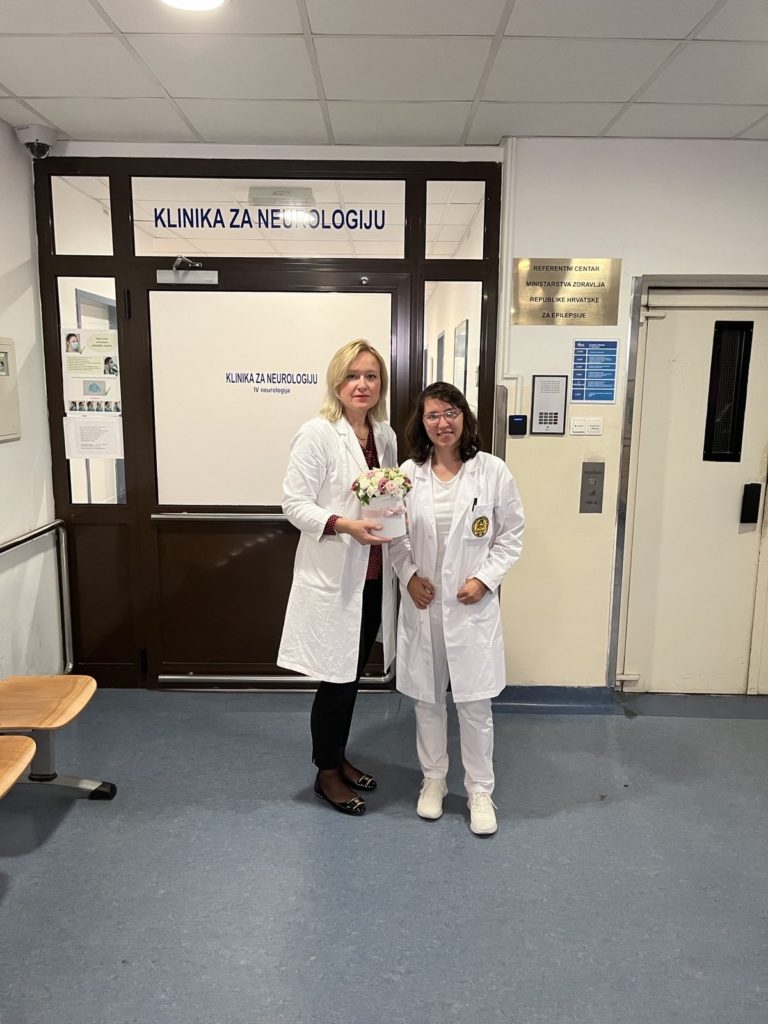
In the end, I would like to thank EAN for making this experience in the University Hospital Centre Zagreb possible. It exceeded my expectations and solidified my decision to devote my life to neurology. A special thank you goes to Prof. Ervina Bilić, Head of the Department of Neurology and Ms. Jasna Turković, Head of International Relations Office of the School of Medicine, UniZG for all the help and support during this project. I am also thankful to every single member of the Centre for Epilepsy – from the neurophysiology technicians to nurses and doctors, for the warmest welcome and all the knowledge they selflessly shared with me. I have never met health professionals so devoted to patient care and they are a real inspiration. Last but not least, I will always be grateful to my supervisor, Prof. Željka Petelin Gadže, for consistent support, encouragement, amazing dedication and effort. It was a true privilege learning from the best.
…
Report from 6 weeks in Salzburg
by Dominik Felkle
Visiting the Department of Neurology, Christian-Doppler-Klinik in Salzburg, Austria in Sept-Oct 2022
In autumn 2022 I had the pleasure of spending almost six weeks on an EAN Student Teaser Fellowship at the Department of Neurology of the Christian-Doppler-Klinik in Salzburg. The hospital consists of several neurological departments, a central clinic, and some special outpatient clinics. I have spent most of my time at the Wirbelsäulenstation (Spine Station), which deals not only with patients suffering from spinal diseases and pain, but also with the entire spectrum of neurologic complaints, taking care of those recovering from stroke, undergoing diagnostics after the seizure onset, with suspected brain tumours or amyotrophic lateral sclerosis. I also had the opportunity to spend a few productive days in the EEG lab, where I was familiarised with brain rhythms and their alterations, as well as epileptiform discharges and other abnormalities, especially significant for the diagnosis of epilepsy and status epilepticus, but also encephalopathies or brain lesions. Additionally, I had the chance to visit the intensive care unit, the stroke unit, and the special clinic for patients with Parkinson’s disease. Finally, two times a week, I participated in seminars that discussed current topics in neurology.
I cannot forget to mention Salzburg and its absolutely wonderful surroundings. Despite the tranquil atmosphere, Salzburg remains a bustling city, abounding in historical and cultural heritage. I will certainly not forget the improvisation on the five magnificent cathedral organs, which I was able to hear one of the Sunday evenings, or the breathtaking Alpine scenery seen from Kehlstein on a sunny autumn day.
Thank you EAN for this amazing experience!
Visit the Student Teaser Fellowship website to find out more about this interesting opportunity for medical students. Interested applicants can get information about eligibility, how to apply with useful tips and FAQ, and how to become a student member including additional benefits when joining the EAN.
New application deadline is 31 March 2023
and the fellowship period is effective from 1 April 2023 to 31 January 2024.
The Student Teaser Fellowship is supervised and reviewed by the EAN Education Committee together with members of the Student Task Force

